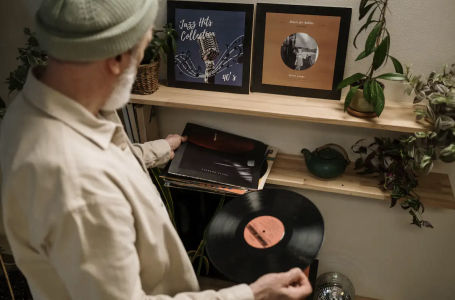SDC Rewards Member
Upgrade yours now
Why is my loved one with dementia sometimes ‘there’ and sometimes not?
Dementia is an umbrella term to describe a progressive neurological condition that affects people’s cognitive abilities, such as memory, language and reasoning.
Alzheimer’s is the most common form, but other common forms include vascular dementia, Lewy Body dementia and frontotemporal dementia.
It’s not uncommon for people living with dementia to experience fluctuations in their cognitive abilities and levels of awareness.
People living with dementia can sometimes be fully “present”, knowing who is around them, where they are, and what’s happening. And then other times they may be confused, disorientated, unaware of their surroundings and unfamiliar with loved ones.
These fluctuations can be distressing for caregivers, who never know what to expect from one day to the next.
What causes these fluctuations in awareness?
Several factors can contribute to cognitive fluctuations in people living with dementia. Environmental factors, such as changes in routine or new surroundings, can cause confusion and disorientation.Fatigue can also play an important role. Tiredness, even in young adults, has known negative effects on a person’s attention and learning ability. This can be much more pronounced in older adults and people living with dementia.
Certain medications used to treat dementia and other related health conditions can also have an impact on a person’s cognitive function.
For example, some medications used to treat depression or anxiety can cause confusion or disorientation, especially in older adults.
Finally, time of day can play an important role in cognitive fluctuations.
People living with dementia often experience “sundowning”, where they can become more agitated or confused in the late afternoon or evening. Sundowning can also lead to pacing or wandering in people living with dementia.
Some scientists think this might be due to changes in the area of the brain that controls the “inner clock”, which signals when we’re awake or asleep. This breakdown can lead to confusion.
Patients with dementia will also often experience a period of lucidity in the week leading up to death. Science still isn’t quite sure why this happens, and studies are ongoing.
Do we know what’s happening in the brain?
The neurobiology that underpins these cognitive fluctuations remains unclear. However, dementia is caused by damage to brain cells and the connections between them.In Alzheimer’s disease, this gradual deterioration of brain cells begins first in the memory centres of the brain, and gradually spreads to regions that govern attention and awareness.
Changes in the brain’s “default mode network” may also result in these fluctuations. The default mode network is a network of brain regions that remains active when a person is not engaged or focused on any task. It’s thought to help with remembering, developing our concept of the self, and thinking about the future.
This network is active during our “resting state”. In people living with dementia, the default mode network is disrupted and this can lead to changes in cognition and self-awareness.
Is there anything that can help?
Despite the challenges associated with cognitive fluctuations in people living with dementia, scientists have found behavioural interventions can provide some relief.For example, a review of music therapy studies demonstrated music can improve mood and memory outcomes in people living with dementia.
Listening to familiar music can also help to maintain a sense of self and stimulate autobiographical memories in people living with dementia.
Some scientists think this may be because music can help regulate the default mode network, which is crucial for the processing of information about ourselves.

Music has been found to improve mood and memory in dementia patients. pexels/cottonbro studio, CC BY
What to do if your loved one isn’t “there”
When visiting your loved one with dementia, it’s important to use short sentences, make eye contact, minimise distractions (such as TV or radio playing loudly in the background), and not interrupt them.If your loved one with dementia is agitated, it’s important to listen calmly to their concerns and frustrations. Challenging them can often lead to them becoming more agitated.
Changes in behaviour or emotional state of a person living with dementia can be very stressful for the person, and their loved ones and caregivers. These changes in behaviour may be a result of changes in the brain. But often they can also be a result of frustration in the person’s reduced ability to communicate as effectively as they once did.
There are a range of tips to reduce cognitive fluctuations in people living with dementia. These include limiting caffeine intake, exposing them to natural light during the day and warmer lighting in the evening, and getting sufficient physical activity.
However, cognitive fluctuations in people living with dementia are a complex and challenging aspect of the disease. And while some behavioural interventions, such as music therapy, can provide temporary improvements in mood and memory, dementia is a terminal illness.
There are now several drugs that hold promise for slowing memory decline in people with Alzheimer’s. However, the effects are small, and much more research is needed to better understand and treat this devastating disease.
This article was first published on The Conversation, and was written by Yen Ying Lim, Associate Professor, Monash University






